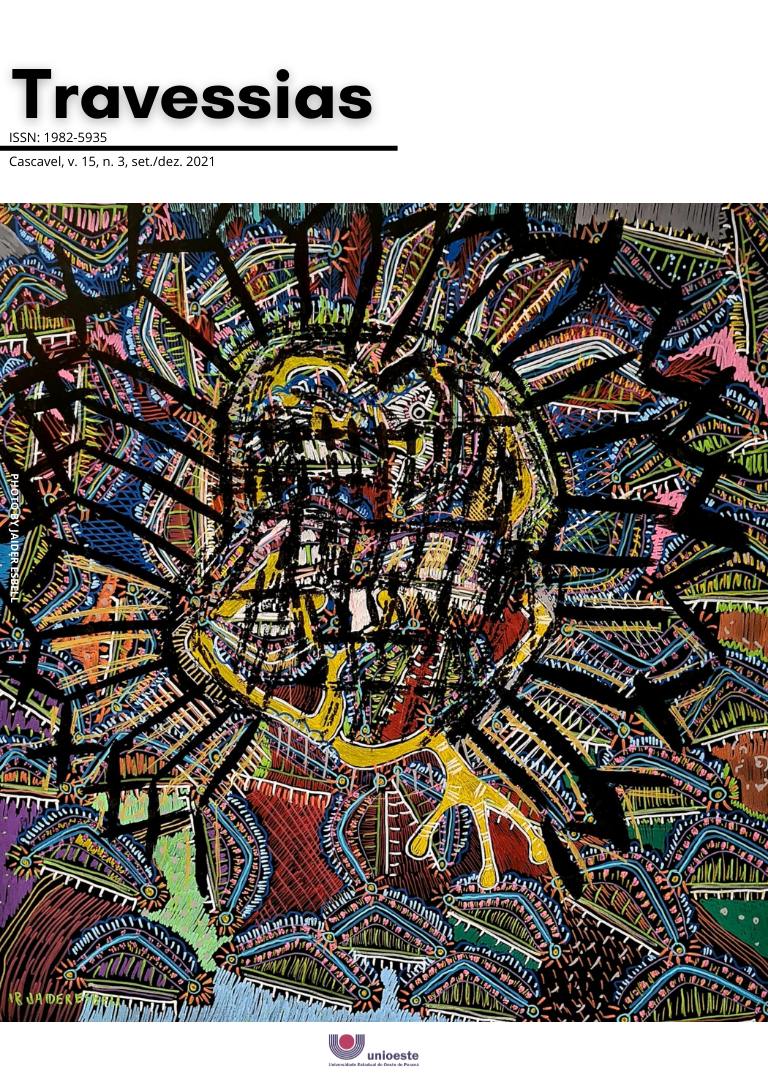Educação em tempos de pandemia:
ensino remoto pela visão docente nos cursos de Publicidade e Propaganda e de Jornalismo na Universidade Franciscana
DOI:
https://doi.org/10.48075/rt.v15i3.27833Palavras-chave:
Pandemia, Comunicação Social, Ensino, AdaptaçãoResumo
Inserido no tema de ensino em tempos de pandemia, este é um estudo bibliográfico exploratório da Comunicação Social que foi desenvolvido na Universidade Franciscana e aplicado diretamente ao corpo docente dos cursos de Publicidade e Propaganda e Jornalismo com o objetivo geral de compreender os impactos do Ensino Remoto – adotado pela instituição – nas suas metodologias e dinâmicas tradicionais. Para coleta de informações, um questionário via Google Forms foi elaborado a partir de dois diferentes grupos de autores como base teórica: Moreira, Henriques e Barros (2020) e Petermann et al (2020). Da interpretação de seus trabalhos, adaptamos 3 seções de questões em nosso estudo: 1) questões sobre os planejamentos docentes; 2) questões sobre as tecnologias utilizadas no ensino remoto; e 3) uma avaliação conduzida ao docente para refletir sobre sua adaptação ao formato. O questionário foi enviado a um total de 20 docentes divididos entre os cursos e, positivamente, obteve-se o número máximo das respostas. Como resultados, pudemos compreender o panorama de Ensino Remoto pela Comunicação Social na Universidade Franciscana: um corpo docente adaptado e seguro para lecionar neste modelo – mesmo apesar das adversidades encontradas – reconhecendo as mudanças tecnológicas e metodológicas desse cenário como oportunidades para “hibridizar” o ensino (mesmo no futuro, após a pandemia) ressignificando a aprendizagem com as tecnologias contemporâneas da Era Digital e da Informação e da Comunicação.
Downloads
Referências
APPENZELLER, S. et al. Novos Tempos, Novos Desafios: estratégias para equidade de acesso ao ensino remoto emergencial. Revista Brasileira de Educação Médica, v. 44, 2020.
ARRUDA, E. P. Educação remota emergencial: elementos para políticas públicas na educação brasileira em tempos de Covid-19. EmRede-Revista de Educação a Distância, v. 7, n. 1, p. 257-275, 2020.
CASTAMAN, A. S.; RODRIGUES, R. A. Educação a Distância na crise COVID - 19: um relato de experiência. Research, Society and Development, v. 9, n. 6, e180963699, 2020.
FARIA, N. H. S. A indústria do entretenimento e a expansão do streaming em meio a pandemia. 2020. Trabalho de Conclusão de Curso (Jornalismo) - Centro Universitário do Sul de Minas, Varginha. 2020. Disponível em http://repositorio.unis.edu.br/bitstream/prefix/1371/1/Monografia%20-%20Naiara%20Helena%20Salviano%20Faria.pdf. Acesso em 01/07/2020.
FILHO, A. B. Comunicação e Covid-19. Castro D., Dal Seno, D. & Pochmann, M. (org.). Capitalismo e a Covid-19. São Paulo, p. 47-55, 2020.
GODOI, M. et al. O Ensino Remoto durante a pandemia de covid-19: desafios, aprendizagens e expectativas dos professores universitários de Educação Física. Research, Society and Development, v. 9, n. 10, p. e4309108734-e4309108734, 2020.
JOYE, C.; MOREIRA, M. M.; ROCHA, S. S. D. Educação a Distância ou Atividade Educacional Remota Emergencial: em busca do elo perdido da educação escolar em tempos de COVID-19. Research, Society and Development, v. 9, n. 7, p. e521974299-e521974299, 2020.
MICHEL, M. H. Metodologia e pesquisa científica em Ciências Sociais. 2. ed. São Paulo: Editora Atlas, 2009.
MORAIS, L. F. G. Educação infantil em telas: articulações possíveis entre comunicação, educação e tecnologias na produção de videoaulas durante a pandemia de Covid-19. 2021. 134 f. Dissertação (Mestrado em Tecnologias, Comunicação e Educação) - Universidade Federal de Uberlândia, Uberlândia, 2021. Disponível em: http://doi.org/10.14393/ufu.di.2021.225. Acesso em: 01 jul. 2020.
MOREIRA, J. A.; HENRIQUES, S.; BARROS, D. M. V. Transitando de um Ensino Remoto emergencial para uma educação digital em rede, em tempos de pandemia. Dialogia, p. 351-364, 2020.
OLIVEIRA, R. M.; CORRÊA, Y.; MORÉS, A. Ensino Remoto emergencial em tempos de covid-19: formação docente e tecnologias digitais. Revista Internacional de Formação de Professores, v. 5, p. e020028-e020028, 2020.
PETERMANN et al. Ensino Remoto de publicidade e propaganda em tempos de pandemia. Relatório produzido pelo Grupo IEP – Inovação no Ensino de Publicidade, 2020. Disponível em https://a3206998-0117-4487-bafc-c62fc921a86a.filesusr.com/ugd/bb9c7e_99434b4c2cfd4ca0a05b8b92e3fa59d9.pdf. Acesso em 03/04/2020.
RABELLO, M. E. Lições do coronavírus: ensino remoto emergencial não é EAD. Desafios da Educação, 2020. Disponível em https://desafiosdaeducacao.grupoa.com.br/coronavirus-ensino-remoto/. Acesso em: 06 out. 2020.
ROCHA, C. R. da et al. A utilização das redes sociais como estratégia para continuidade da extensão universitária em tempos de pandemia. RAÍZES E RUMOS, v. 8, n. 1, p. 261-269, 2020.
VALENTE, G. S. C. et al. O Ensino Remoto frente às exigências do contexto de pandemia: reflexões sobre a prática docente. Research, Society and Development, v. 9, n. 9, p. e843998153-e843998153, 2020.
Downloads
Publicado
Como Citar
Edição
Seção
Licença
Copyright (c) 2021 Autores mantêm os direitos autorais e concedem à revista o direito de primeira publicação, com o trabalho simultaneamente licenciado sob CC-BY-NC-SA 4.0 que permite o compartilhamento do trabalho com indicação da autoria e publicação inicial nesta revista

Este trabalho está licenciado sob uma licença Creative Commons Attribution-NonCommercial-ShareAlike 4.0 International License.
Aviso de Direito Autoral Creative Commons
Política para Periódicos de Acesso Livre
Autores que publicam nesta revista concordam com os seguintes termos:
1. Autores mantêm os direitos autorais e concedem à revista o direito de primeira publicação, com o trabalho simultaneamente licenciado sob a Licença Creative Commons Attribution que permite o compartilhamento do trabalho com reconhecimento da autoria e publicação inicial nesta revista.
2. Autores têm autorização para assumir contratos adicionais separadamente, para distribuição não-exclusiva da versão do trabalho publicada nesta revista (ex.: publicar em repositório institucional ou como capítulo de livro), com reconhecimento de autoria e publicação inicial nesta revista.
3. Autores têm permissão e são estimulados a publicar e distribuir seu trabalho online (ex.: em repositórios institucionais ou na sua página pessoal) a qualquer ponto antes ou durante o processo editorial, já que isso pode gerar alterações produtivas, bem como aumentar o impacto e a citação do trabalho publicado (Veja O Efeito do Acesso Livre).
Licença Creative Commons
Esta obra está licenciada com uma Licença Creative Commons Atribuição-NãoComercial-CompartilhaIgual 4.0 Internacional, o que permite compartilhar, copiar, distribuir, exibir, reproduzir, a totalidade ou partes desde que não tenha objetivo comercial e sejam citados os autores e a fonte.



